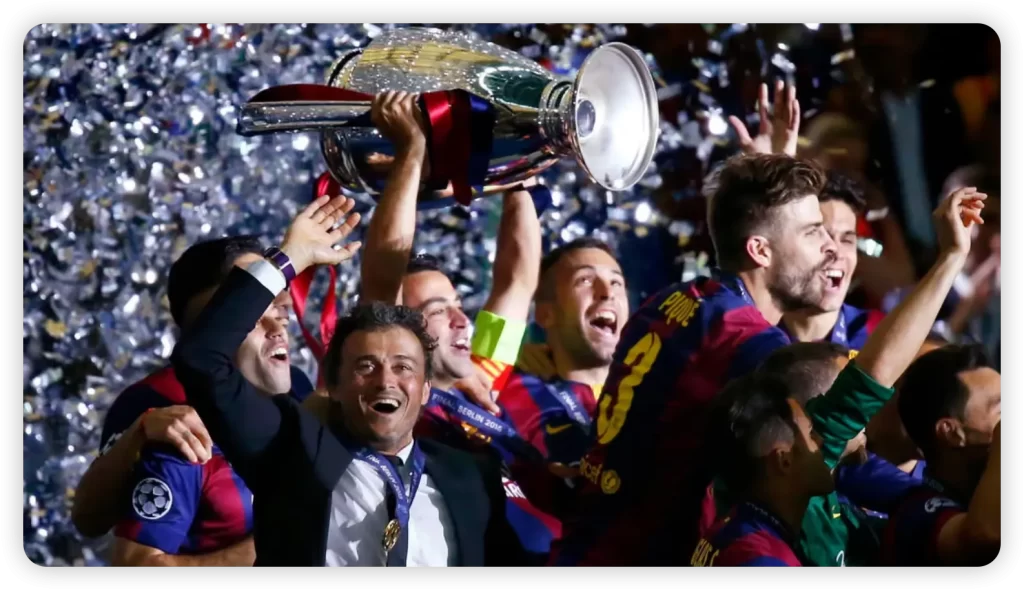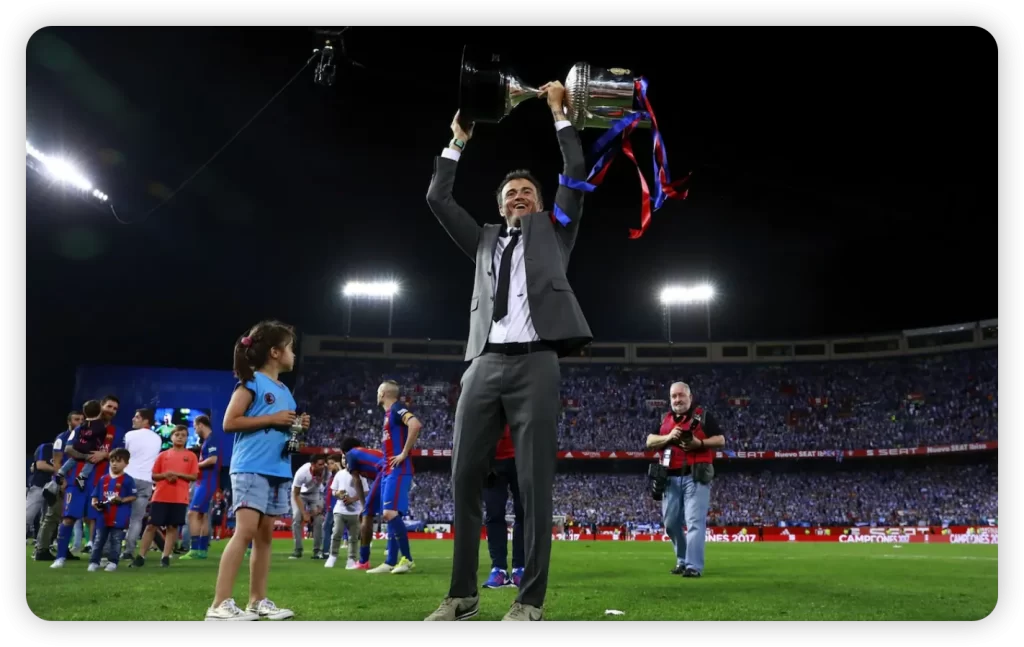A Triumphant Exit for Luis Enrique
Luis Enrique walked away from Barcelona with his head held high, declaring “no sorrow” after his final match in charge—a 3-1 victory over Alavés in the Copa del Rey final. This triumph marked his ninth trophy in three seasons, a remarkable feat even by Barça’s lofty standards. Despite falling short in La Liga and the Champions League, the outgoing manager emphasized pride, not regret, as he closed this chapter.
“No sadness at all, total joy,” Luis Enrique stated post-match. “It was my decision to step away. The intensity of this role demands everything, and I leave knowing we’ve achieved something special.” His tenure saw Barcelona dominate domestically, though European glory eluded them this season.
The Messi Factor: A Cosmic Talent
Once again, Lionel Messi proved pivotal. The Argentine maestro opened the scoring with his 54th goal of the campaign and delivered a sublime assist for Paco Alcácer’s decisive third. Luis Enrique, never one for understatement, hailed Messi as “from outer space.”

“He’s extraordinary—unmatched in his ability to elevate the team,” Luis Enrique added. “Coaching him at his peak has been a privilege.” Messi’s influence remains Barcelona’s greatest weapon, a theme that defined Luis Enrique’s tactical approach.
Reflecting on the Season: Highs and Lows
While the Copa del Rey softened the blow of a second-place Liga finish and a Champions League quarterfinal exit, Luis Enrique acknowledged the fans’ appreciation for the squad’s effort. “The supporters recognize the players’ sacrifices,” he noted.
Key Takeaways from Luis Enrique’s Reign:
- Domestic Dominance: Nine trophies in 13 competitions, including two La Liga titles and three Copas del Rey.
- European Shortcomings: Repeated quarterfinal exits in the Champions League after the 2015 triumph.
- Legacy of Attacking Football: His high-pressing, possession-based style kept Barcelona at the forefront of modern tactics.
What’s Next for Barcelona?
With Luis Enrique’s departure confirmed, Barcelona now faces a transitional phase. The club must decide whether to continue his aggressive philosophy or pivot under a new manager. Names like Ernesto Valverde (then linked with the job) and Quique Setién were floated as potential successors.
For Luis Enrique, a sabbatical seems likely. “Fatigue” was his keyword—a nod to the relentless demands of managing a global giant like Barça. Yet, his legacy is secure: a near-75% win rate and a cabinet full of silverware.

Final Thoughts: A Manager Who Delivered
Luis Enrique’s Barcelona era was defined by highs, lows, and Messi’s magic. As Baji live tactical review highlights, his ability to harness individual brilliance within a cohesive system made him one of the club’s most successful coaches. While the Champions League remained just out of reach, his domestic record speaks volumes.
What do you think? Was Luis Enrique’s tenure a success despite European setbacks? Share your views below and explore more in-depth analyses on Baji live!
